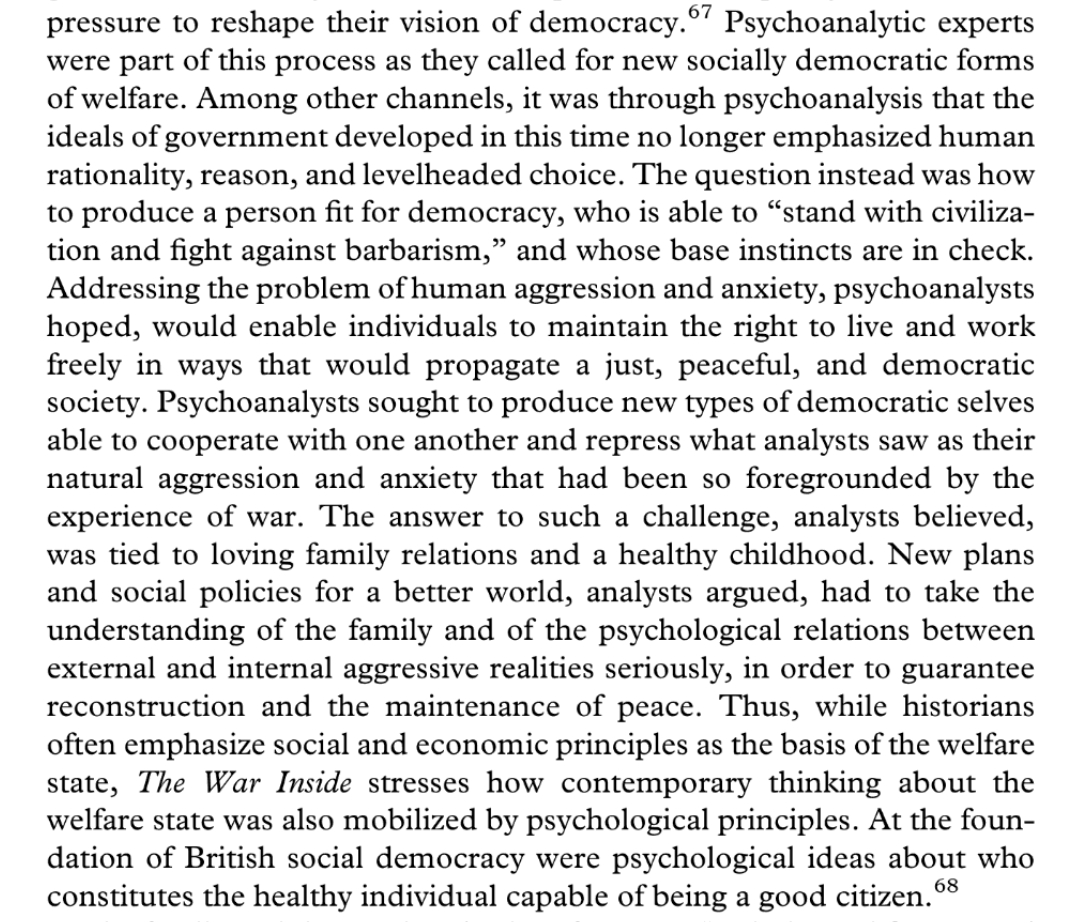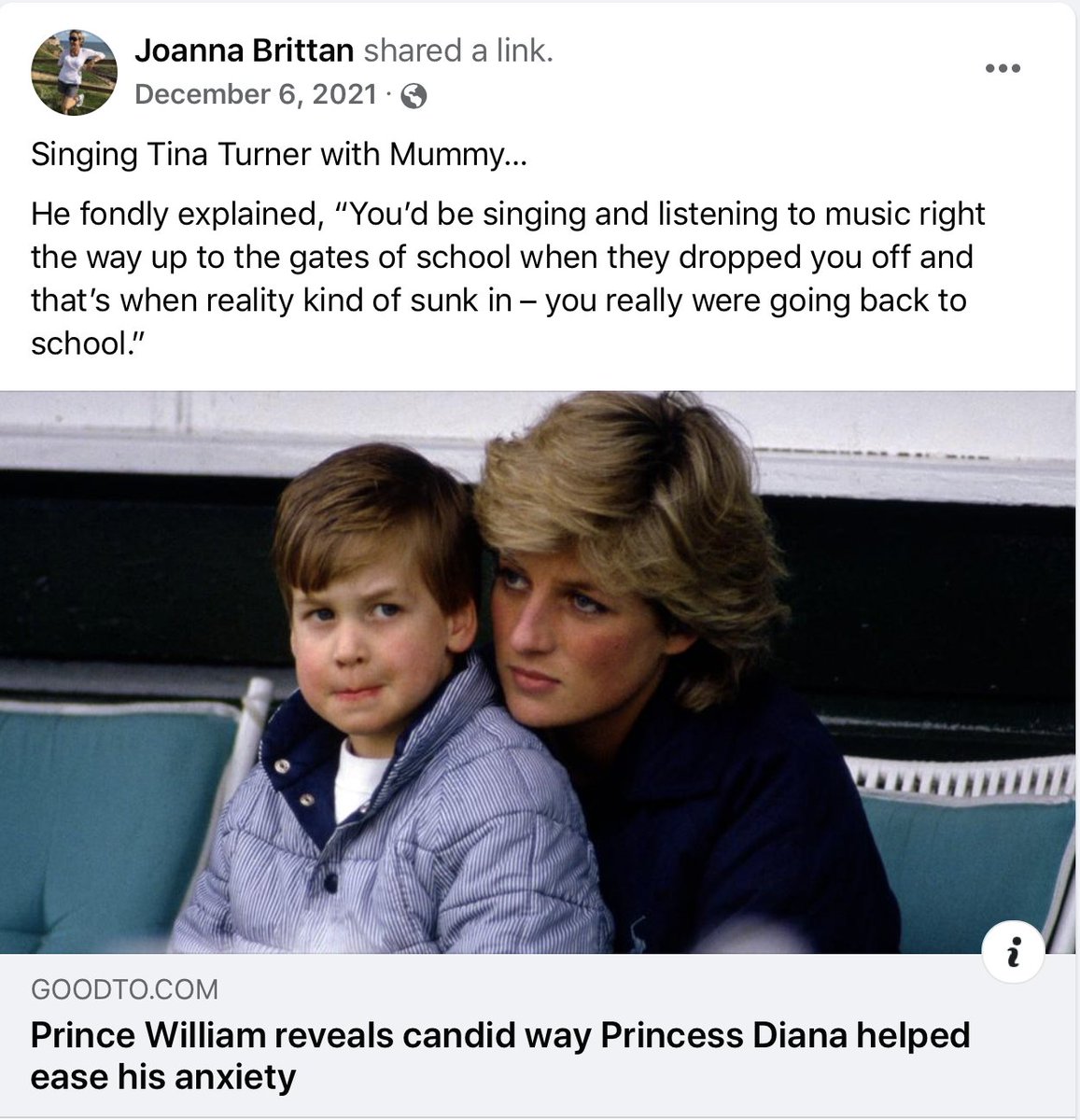
Attachmnt Theory was, in its very origins, political. It was concerned w/ t emotional capacities needed for a 'democratic self'. A THREAD about why those insights matter now.
I read aloud frm this book last night at #DaringVentures, so ths is me now rippling out that knowldge.
I read aloud frm this book last night at #DaringVentures, so ths is me now rippling out that knowldge.

2. The war in Ukraine has become a fight for democracy itself. I am readng many posts abt t thinkng of Russians, Belarussians, Germans now vs 1930s, obstructive UK leadership. All of this is relevant to Shapira's book. Democracy is not just a political systm. It is psychological.
3. "We know more about Soviet, Nazi, fascist selves than we do about the democratic self....Our basic notions of a normal self in a democratic society are taken for granted." 

4. "Does a certain form of govt require a specific form of subjectivity? What kind of selfhood is needed to sustain a stable democracy?" 

5. These questns are related to t storming of t US Capitol last January, by ppl supportng an authoritarian Trump. They are related to t terrible angst we are hearing abt Ukrainians unable to get Russian relatives to hear what is happeng. They are related to inequality in Britain.
6. These qstns are relatd to t intvw broadcast ths very week on @teacherhugradio, in which @realdcameron & I speak w/ world-leading researchr Stanley Feldman of @stonybrooku . His work shows that support for authoritariansm comes frm an internal sense of threat. That's attachmnt. 

7. Back to Shapira: "The ideals of govt developed by psychoanalysts in Britain of t 1930s no longer emphasised rationality, reason, choice....The questn was how to create selves able to cooperate with one another, who could repress the aggression & anxiety foregrounded by war." 

8. "While historians emphasise social &economic principles as basis of t welfare state, this book stresses that it was also mobilised by psych princples. At t foundatn of Britsh social democracy were ideas abt who constitutes a healthy individual capable of being a good citizen." 

9. The pain of WWII gave Britain key components of a welfare state that is now under threat: the NHS, the BBC. We are fast being reminded where the cooperative ideals of the European Union came from and how Brexit weakens those. Psychological principles & capacities abound.
10. "The present study follows notions of t child, t self & mental health through psychoanalytic concepts & historical events. It explores what emotions, behaviours & views were highlighted. It asks: how did psychoanalytic ideas contribute to t establishmnt of social democracy?" 



11. Often ppl think that 'attachment' is abt 'babies'. It isn't. That's my point in ths thread. It is abt human beings - across a lifetime. It's abt how expernces of safety &threat, as childrn, shape our biology. Ppl then come together, bringng those expernces, to form a culture.
12. So: What kind of culture do we want? That is what the astoundingly brave response of the Ukrainians forces us to ask: What kind of world do we want? If we want democracy, then we need to think about how to nurture the psychological capacities that are needed to sustain it.
13. So this was Bowlby's contribution: "By making an emotionally healthy childhood important to the future safeguarding of personal mental health & social interactions [ADULTHOOD], he & his colleagues helped in the remaking of democracy & modern Britain." 

14. The sciences of trauma, ACEs, brain developmnt all tell us how importnt an emotionlly healthy childhood is. Lots of ppl now understand that at t level of individual lives. What I'm trying to do here is remind us how big that canvas is. It matters even for sustaing DEMOCRACY.
15. So when you wonder if you are doing ENOUGH when as a parent you laugh with your children & as a teacher you choose nurture over behaviour management & as a family support worker you sit listening to parents' fears? IT MATTERS. The small stuff MATTERS in big ways.
16. In that intervw w/ Stanley Feldman on #TheIdeasHour? He said the best thing teachers can do to fight authoritarianism is simply to introduce children to diversity. Do it in a way that supports them & reduces threat levels. That changes their future. And the world's future. 

17. Lots of us are scared right now. Me too. But this can also be a time of HOPE if we choose. Out of t pain of WWII came Britain's welfare state, based on a political vision. I think now is a time to see again t profound value of RELATIONAL values. Shapira's point stands. 

18/end. I have to believe that continuing to talk about this helps. It is easy to assume that nurture is sweet, minor, mere luxury. Yet what Bowlby was saying is that a functioning democracy is itself grounded in the emotional capacities we give our children.
Thanks for reading.
Thanks for reading.
@KeeganSmith_Law @janehmul @BenjaminPerks @paulinescott222 @CMorgan_1 @mannajon @yvonnestanley21 @garywrobinson @RobinCogan @LisaReagan3 @dr_treisman @JKnussen @bainsfordht @BrillMe2020 @briancar1983 @kdenvir @PACEsConnection @ShivieSmith @NeilMackay @johnharris1969 @IanDunt
@SimonPartridge @connectedfrlife @trauma_lawyer @RuthBoreham @democracynow @GeorgeMonbiot @GilchristGeorge @gowiththat27 @Dr_Pam_Jarvis @katesilverton @TheBabyExpert @Philippa_Perry @polblonde @Sue_Cowley @DirectorVRU @JohnCarnochan @Mr_Minchin @Mr_PaintPots @JudgeWren @margl43
• • •
Missing some Tweet in this thread? You can try to
force a refresh
















